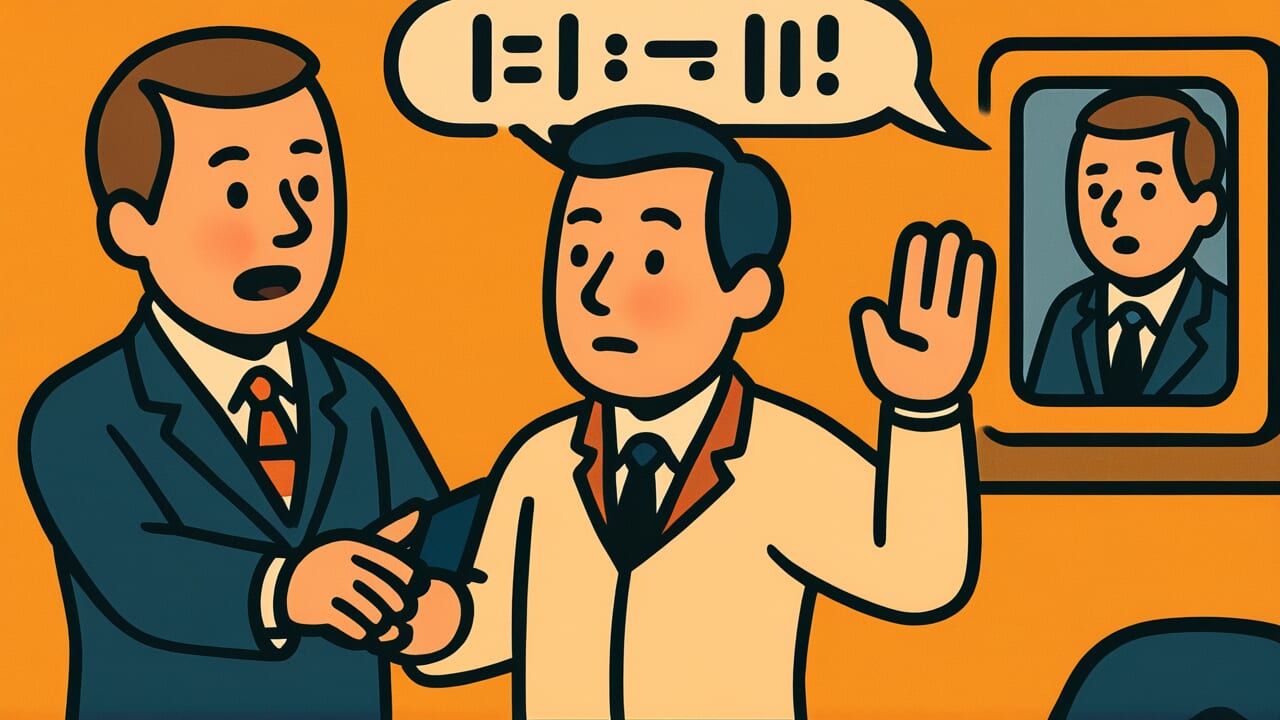How to Read “Quick to jump to conclusions, quick to forget”
Hayagaten no hayawasure
Meaning of “Quick to jump to conclusions, quick to forget”
This proverb points out a human tendency. People who make hasty judgments without thinking carefully also forget those judgments quickly.
When someone reaches a conclusion without deep thought, they haven’t properly organized the reasoning process in their mind. As a result, the judgment doesn’t stick in their memory and gets forgotten easily.
On the other hand, conclusions reached through careful, time-consuming thought become engraved in the heart along with the thinking process. These stay in memory much longer.
This proverb is used to critically describe the behavior patterns of careless people. It applies to those who quickly forget promises, say different things from one day to the next, or overturn decisions made on emotional impulse.
Even today, many situations fit this saying. Think of people who react instantly on social media and later retract their words. Or those who make impulsive decisions and then regret them.
Origin and Etymology
No clear written records explain the origin of this proverb. However, we can make interesting observations from how the phrase is constructed.
The word “hayagaten” appears in documents from the Edo period. “Gaten” originally means understanding or acceptance. Adding “haya” (quick) creates a word describing hasty judgment without sufficient thought.
The expression “Quick to jump to conclusions, quick to forget” likely emerged from sharp observation of human cognitive traits. Our ancestors understood through experience that shallow understanding doesn’t stick in memory well.
During the Edo period, common people must have witnessed many situations where hasty judgments led to failure in business and relationships. Through daily observation, they identified this human behavior pattern. They turned it into words as a warning.
The expression’s cleverness lies in repeating the character “haya” (quick). This creates rhythm and makes the phrase memorable. The saying is crafted to be easy to say and remember while conveying an important lesson.
Usage Examples
- He agreed in the meeting but already forgot—truly quick to jump to conclusions, quick to forget
- Getting angry quickly and calming down just as fast shows you’re quick to jump to conclusions, quick to forget, proof you’re not thinking seriously
Universal Wisdom
“Quick to jump to conclusions, quick to forget” contains universal wisdom. It reveals the deep connection between human thinking and memory.
Why do people who judge hastily forget easily? Because human memory isn’t just a storage box for information. It’s deeply connected to the thinking process itself.
When you think carefully, you examine things from various angles. You question, you search for answers. This journey of thought itself strengthens memory.
People who reach conclusions without deep thought skip this process. They judge based only on surface understanding. Their judgment reaches only the shallow layers of the mind and flows away quickly.
Like plants without roots, these judgments are easily blown away by the wind.
This truth applies to human relationships too. People who judge others by first impressions alone, without trying to understand them deeply, quickly forget those people.
Conversely, those who take time to know others cherish those relationships for a long time.
Our ancestors saw this human essence clearly. They condensed it into a short phrase. This isn’t mere criticism. It’s a warm teaching about the importance of thinking deeply and holding more certain memories.
When AI Hears This
For the brain to store information as memory, a phenomenon called “long-term potentiation” must occur in the hippocampus. This strengthens connections between synapses.
Think of it like making footprints in sand. Walking the same path repeatedly creates deep tracks. But stepping lightly just once leaves marks that waves quickly erase.
Interestingly, the strength of long-term potentiation correlates with “depth of information processing.” Jumping to conclusions means being satisfied with surface understanding. The brain performs only shallow processing.
The prefrontal cortex doesn’t examine things thoroughly before deciding “I understand.” This leaves neural connections in the hippocampus weak.
Research shows that information learned through deep thinking retains over 80 percent after 24 hours. Information from shallow processing drops below 20 percent.
Even more surprising is what happens the moment you jump to conclusions. The brain sends a “processing complete” signal. This cuts off information flow to the hippocampus early and interrupts the memory consolidation process.
Jumping to conclusions acts like a switch that stops the memory-making process midway. This proverb brilliantly captures the essence of the brain’s memory mechanism.
Lessons for Today
This proverb teaches us that depth matters more than speed in modern life.
In our information-flooded era, we constantly face pressure for quick judgments. Social media expects instant reactions. Work values rapid decisions.
But this proverb asks: Is that speed truly valuable?
What matters is having the courage to consciously pause. Before making important judgments, take a breath and create time to think. When listening to others, don’t rush to conclusions. Try to understand thoroughly.
This attitude makes your judgments more solid. It creates experiences that engrave deeply in memory.
This proverb also teaches the importance of self-awareness. If you realize you tend to jump to conclusions, that’s a chance for growth.
By consciously developing the habit of thinking slowly, you can gain deeper understanding and more certain memories.
In an age that treats rushing as a virtue, why not reconsider the value of thinking carefully? That could be the key to enriching your life.



Comments